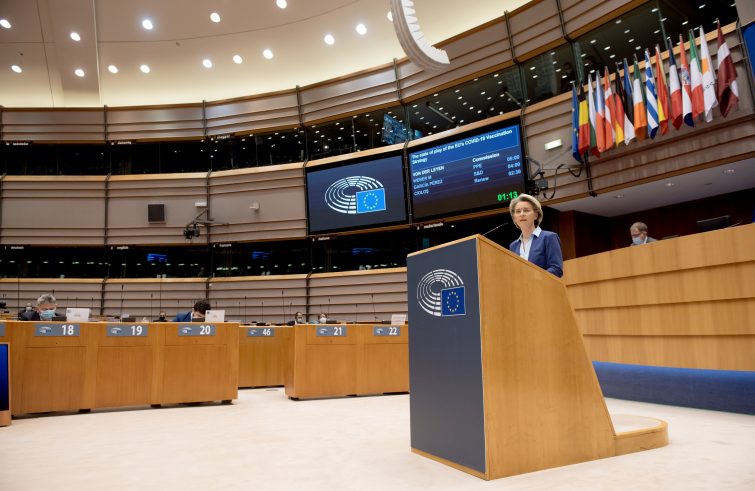
In Europe, 26 million doses of vaccine have been delivered, 17 million people have been vaccinated, and “efforts will be increased to reach the target of vaccinating 70% of the adult population in Europe by the end of the summer”. This has been said by Ursula von der Leyen, president of the EU Commission, as she spoke to the European Parliament to present the situation of the vaccination strategy. Three are the limits: “We have been late with the authorisations”; we have been “too optimistic about the production of the vaccine”; we were “overly confident that what we ordered would be really delivered in time”. Three are the strengths: “Ordering the vaccines together and now sharing them fairly” (doing otherwise would have been “financially absurd and the end of our unity”); now showing the same fairness towards medium- and low-income countries (with the Covax initiative); using longer approval procedures (three to four weeks longer) because they are “an essential investment in confidence and safety”.
To correct such limits, a new European network for clinical tests has been set up in the attempt to improve the sharing of data with the EMA; a task force was born under the coordination of Commissioner Thierry Breton to increase production and “adapt the industry to the pace of science”; a mechanism for transparency and export authorisations has been launched to “avoid restrictions on those who comply with the agreements with the EU”. “How effective the treatments and vaccines are against the new variants is not completely clear yet”: we have to be prepared for that and get ready soon (and this is precisely the purpose of the new Hera project).



